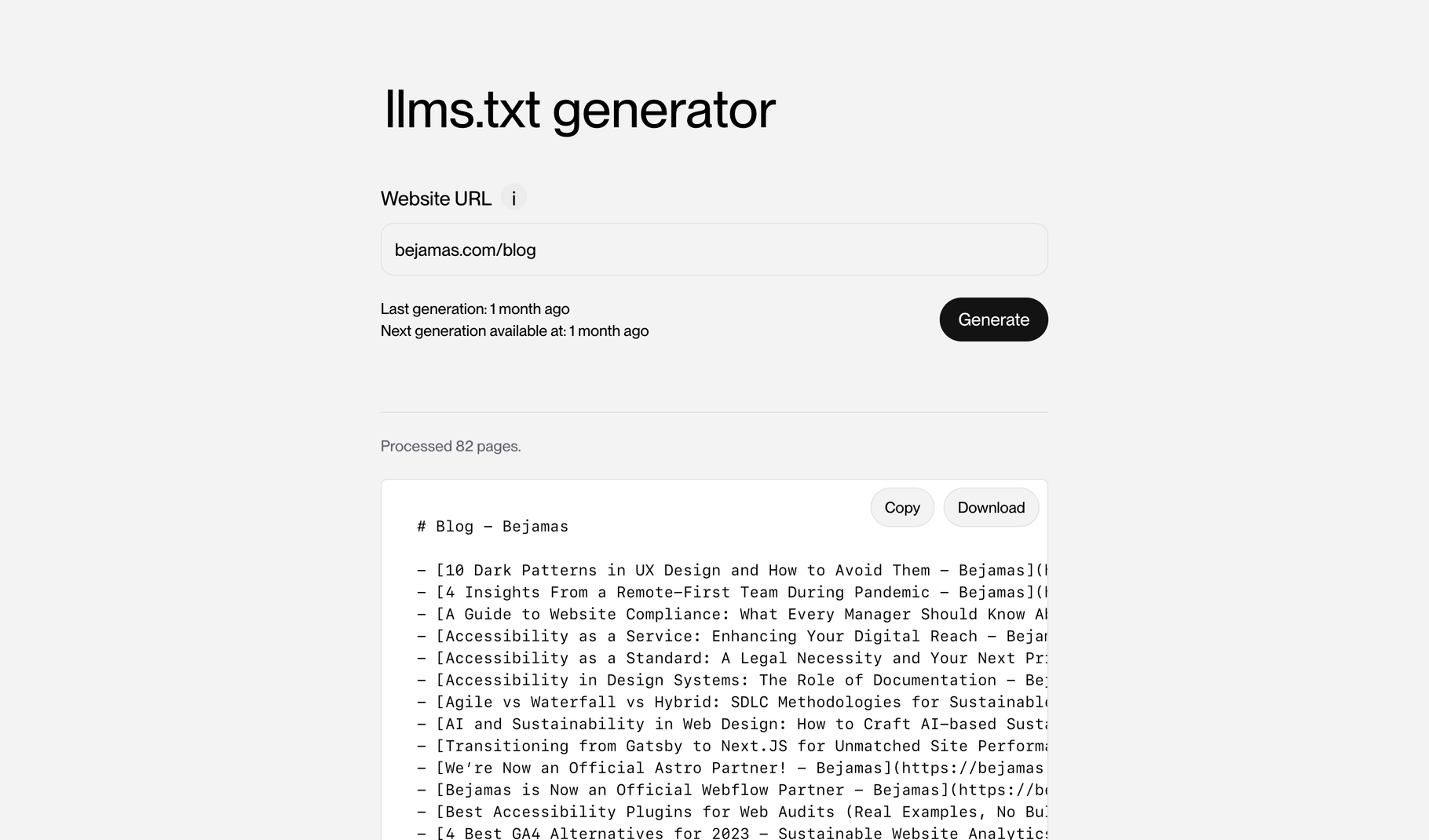September 8, 2025
1 min
Introducing our llms.txt generator
 TK
TKThom KrupaCTO
Large Language Models don’t browse your site like search engines. An llms.txt file makes sure they find and use the right content.

Bejamas llms.txt generator
We all remember the role of robots.txt. A simple text file that told search engines where they could crawl, and where they couldn’t. Straightforward, effective, and part of what kept the web organized.
Fast-forward to 2025. The players have changed. Now, Large Language Models (LLMs)—think ChatGPT, Claude, Gemini—are scanning the web for training and context. But here’s the problem: your modern, design-heavy website isn’t always easy for them to read. Important content can get buried under menus, pop-ups, or ads.
So what do we do?
Enter llms.txt.
What is a llms.txt file?
It’s not another sitemap or set of rules. Instead, it’s a clear, lightweight guide—hosted at yourdomain.com/llms.txt, written in Markdown. At the top: your project name and a short summary. Below: sections pointing to your API docs, guides, FAQs—whatever you want surfaced most. You can also include notes for less important material.
Why does that matter?
Because AI tools don’t crawl and catalogue websites the way search engines do. They take in only what’s immediately available. If the path to your key information isn’t obvious, they’ll likely miss it—or worse, use the wrong details.
An llms.txt file solves this by spotlighting what actually matters—so the AI pulls the right content, every time.
Bejamas llms.txt generator
We built a generator to make this simple. It’s already part of our client workflow, quickly producing neat, compliant llms.txt files that keep their content AI-friendly. But if it helps us, why not share it?
Try it today → https://bejamas.com/tools/llms-txt-generator
Smart, structured, useful.
Join Newsletter
Get notified when we release more like the llms.txt generator.
Authors
 TK
TKCo-founder of Bejamas. Focuses on helping people create faster and better websites and apps. Never bet against the Web.